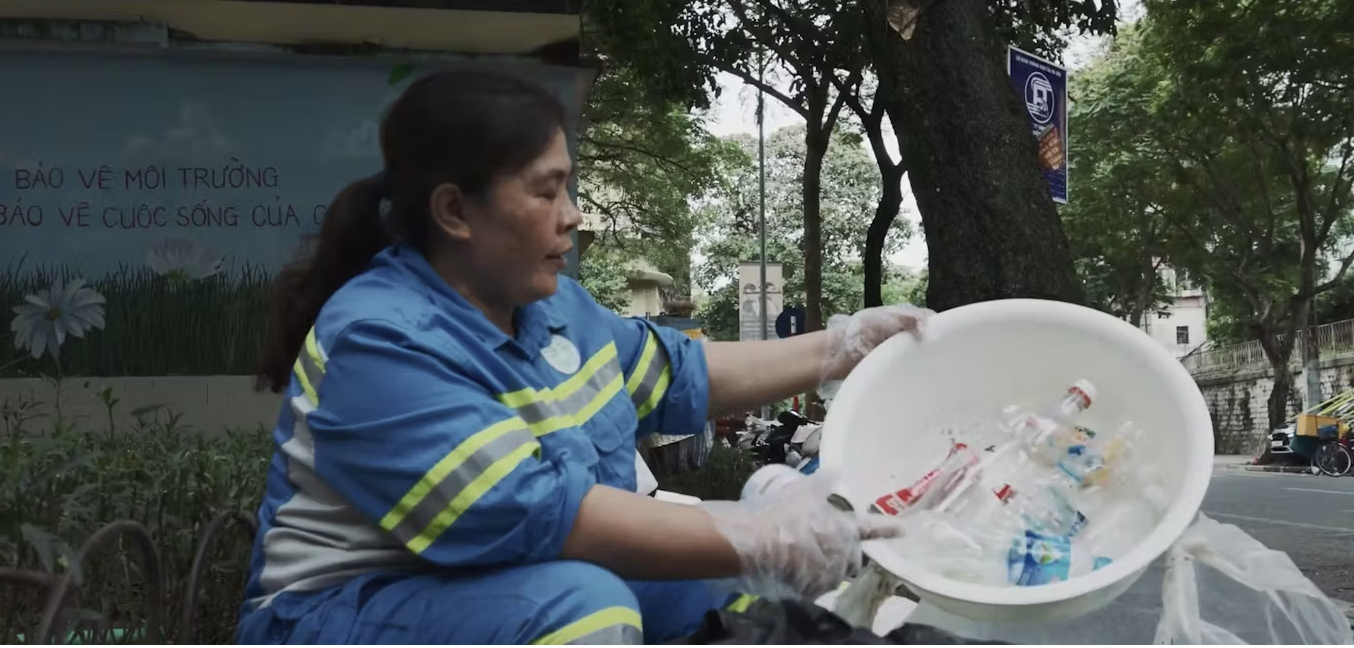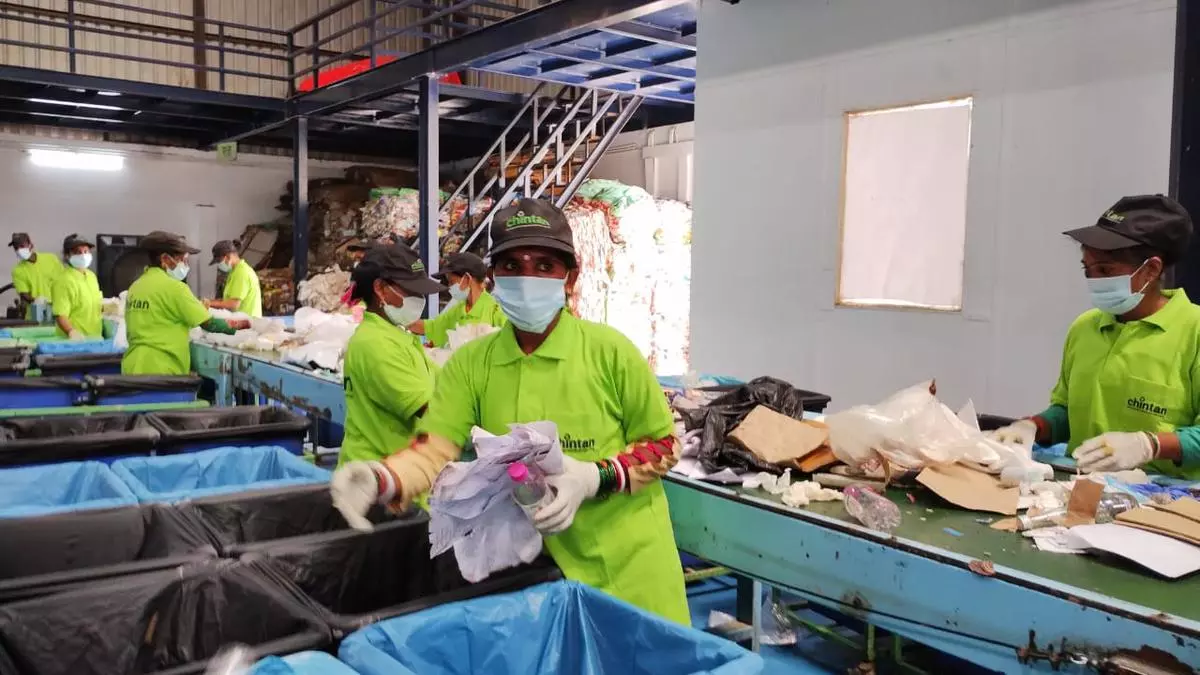In Ninh Thuan province, a sunny and windy land, many pioneering units have begun investing in implementing circular agricultural economic models and high-tech agriculture. This is the trend of sustainable agriculture in the world and in Vietnam, this model has begun to develop in recent years. A typical example is the Sun and Wind farm (Sun & Wind Farm, belonging to GC Food) with an area of nearly 100 hectares in Phu Thuan village, My Son commune, Ninh Son district.
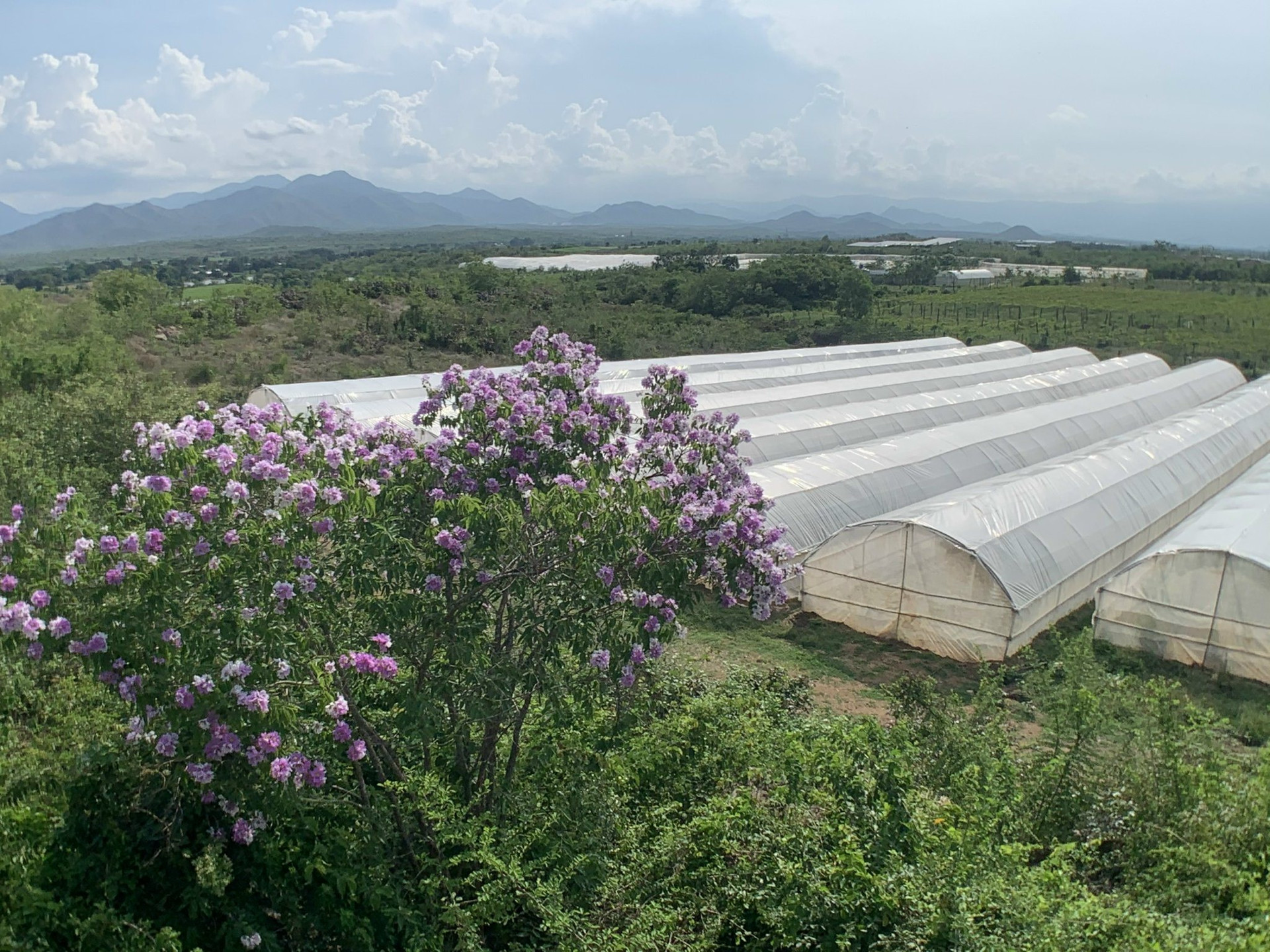
The linear economy is a concept used in previous economies. This economy operates as a flow, converting natural resources into basic materials and products that are then sold through a series of value-added steps, with the tendency to sell as much as possible.
Circular economy is an economic model in which design, production and service activities aim to prolong the life of materials, eliminating negative impacts on the environment. Circular agriculture will help optimize sources of discarded by-products and process them into valuable products that serve previous items in the entire production system.
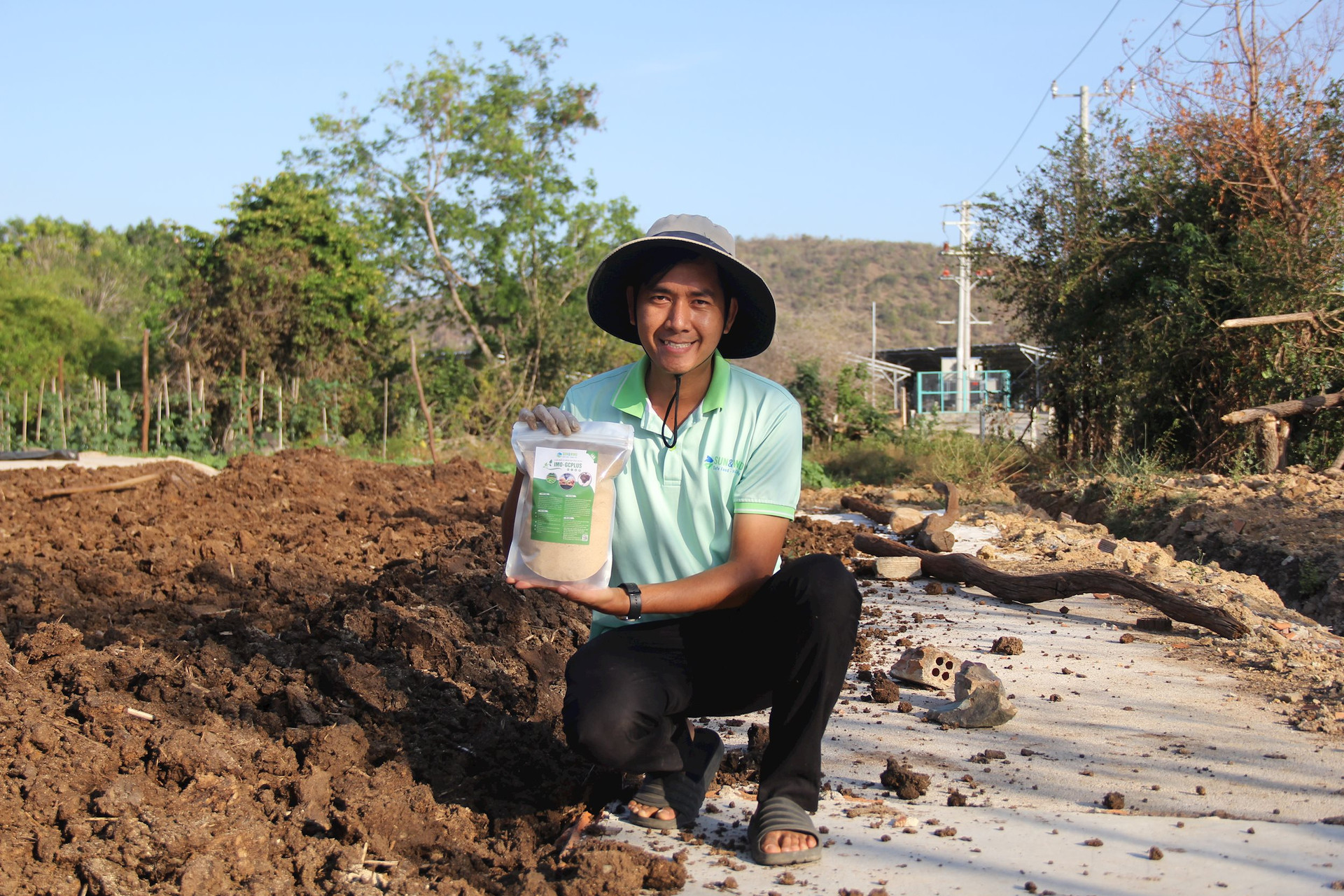
Taking on the role of Head of the GC Plus 2023 applied circular agriculture project at this farm is Mr. Le Minh Vuong, a young man from a countryside in Ninh Hai district, Ninh Thuan province. This project won the first prize in the recent Ninh Thuan province 2023 youth creative startup idea contest.
Improvement from the garden-pond-barn model
Passionate about scientific research and application to production right from the time he was sitting in the lecture hall at Saigon University, Le Minh Vuong has succeeded with many research and creative projects. Typically, the model of “producing microbial organic fertilizer and combining it with earthworm farming from waste sludge from white-legged shrimp ponds” has brought about the “Supporting Dreams” scholarship for Vuong and has been applied in some localities.
After graduating in Environmental Science, Le Minh Vuong continued to pursue his passion and successfully started a business with a model of earthworm farming for compost. This model also brought home the second prize in the “Green Startup” contest in 2015 and since then, the name “King of Worms” has become known to many people. Continuing to develop this model, Mr. Vuong takes on the role of Project Leader “GC Plus 2023 applied circular agriculture project” at Sun and Wind farm. With a large farm area, this is a place for Mr. Vuong to freely apply techniques in farming and animal husbandry combined with earthworm farming to use manure as micro-organic fertilizer.
Sharing with a reporter from Popular Science Magazine, Mr. Vuong said that this is an improved model from the old garden-pond-barn model, with the addition of earthworm micro-organic fertilizer and a combination of 4 item into a tourism experience module. The circular agricultural economic model applied at the Sun and Wind farm will start in 2021.
Here, Mr. Vuong and his staff focused on implementing 4 main items including: garden (according to Global GAP standards) – pond (circulating pond combined with water supply for irrigation and aquaculture) – cages (closed livestock model, with strict diary) and earthworms are raised on a large scale, closed.
With this model, apples, grapes, guavas, melons, aloe vera… are grown and cultivated according to Global GAP standards with strict procedures, while applying natural methods to improve soil such as growing green beans. intercropping gardens, planting Vetiver grass to improve soil and create biomass… From there, premium quality products are produced. In particular, cantaloupe is grown on hilly land, applying technology and organic microorganisms in the cultivation process, combined with favorable natural features such as high sunshine hours and clean water sources, so it has a very unique and delicious taste.
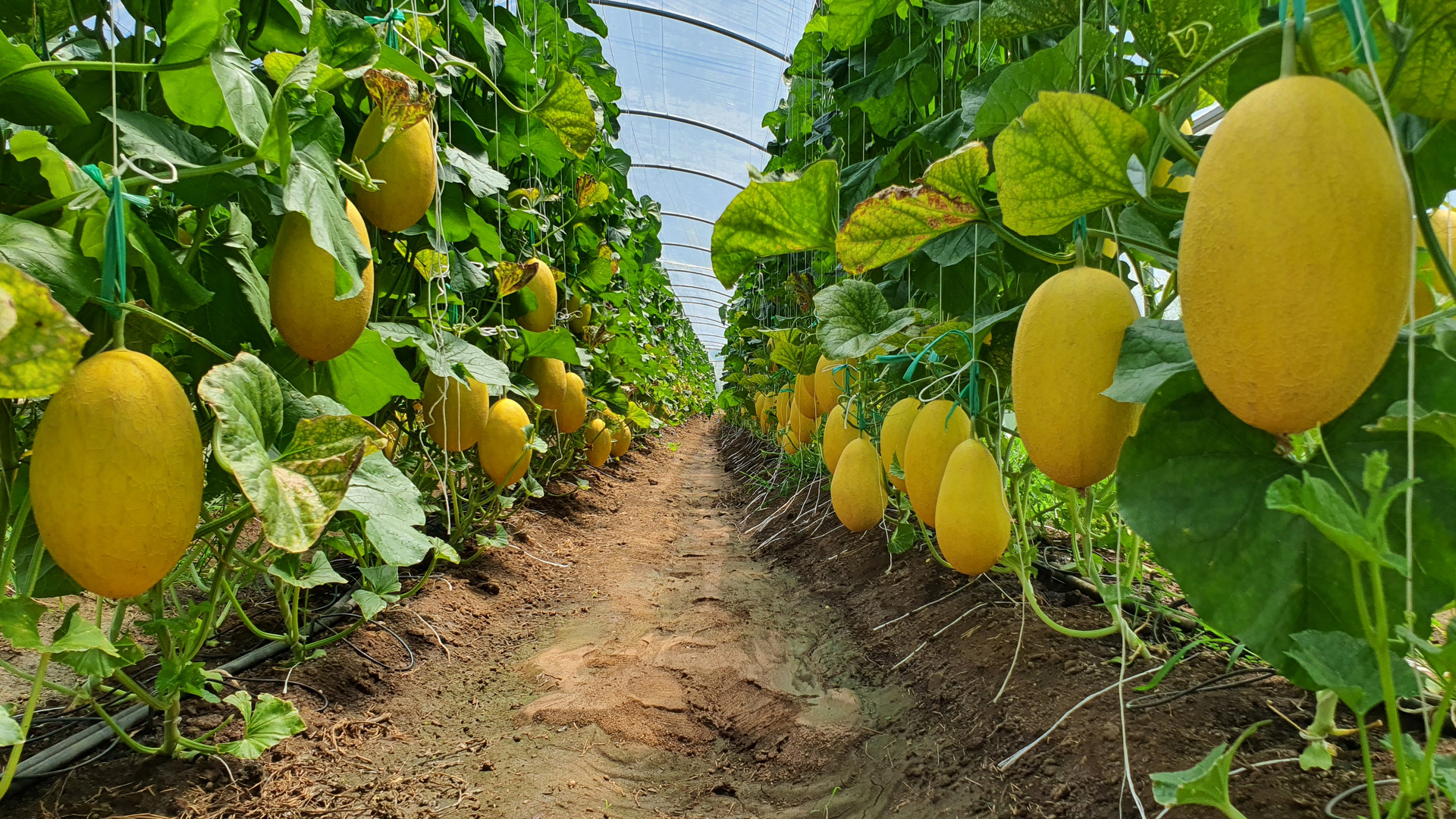
Fruit products at the farm have achieved many prestigious certifications: Cantaloupe, honey apple and green grape products received the title of “Vietnam Agricultural Golden Brand” in 2021 from the Vietnam General Association of Agriculture and Rural Development; Melon, apple and guava products achieve 4-star OCOP certification; Apple, melon, grape, guava, and aloe vera products have also achieved Global GAP certification in 2022…
At the farm, ponds store water to provide irrigation for fruit gardens and fish and aquaculture. At the same time, the pond also plays a combined role as a landscape to develop Farm Stay tourism on the farm.
The cow barns on the farm are raised on an industrial scale, with farming logs to care for each animal and earrings to control. Cow manure is used to process aloe vera leaf peels to create a type of cow manure. The farm’s unique fertilizer is composted aloe vera cow manure to supply grapes, apples, guavas…
At the farm, a land area of about 30 hectares is used to cultivate grass as a food source for cows. Cows are raised according to the fattening process with nutritious food sources, without the use of banned substances; Cows are supplied from local livestock farmers on grasslands and hills, so the quality of the meat is very delicious and good for health. Currently, the herd size is 500 cows and is expected to expand to over 1,000 cows in the near future.
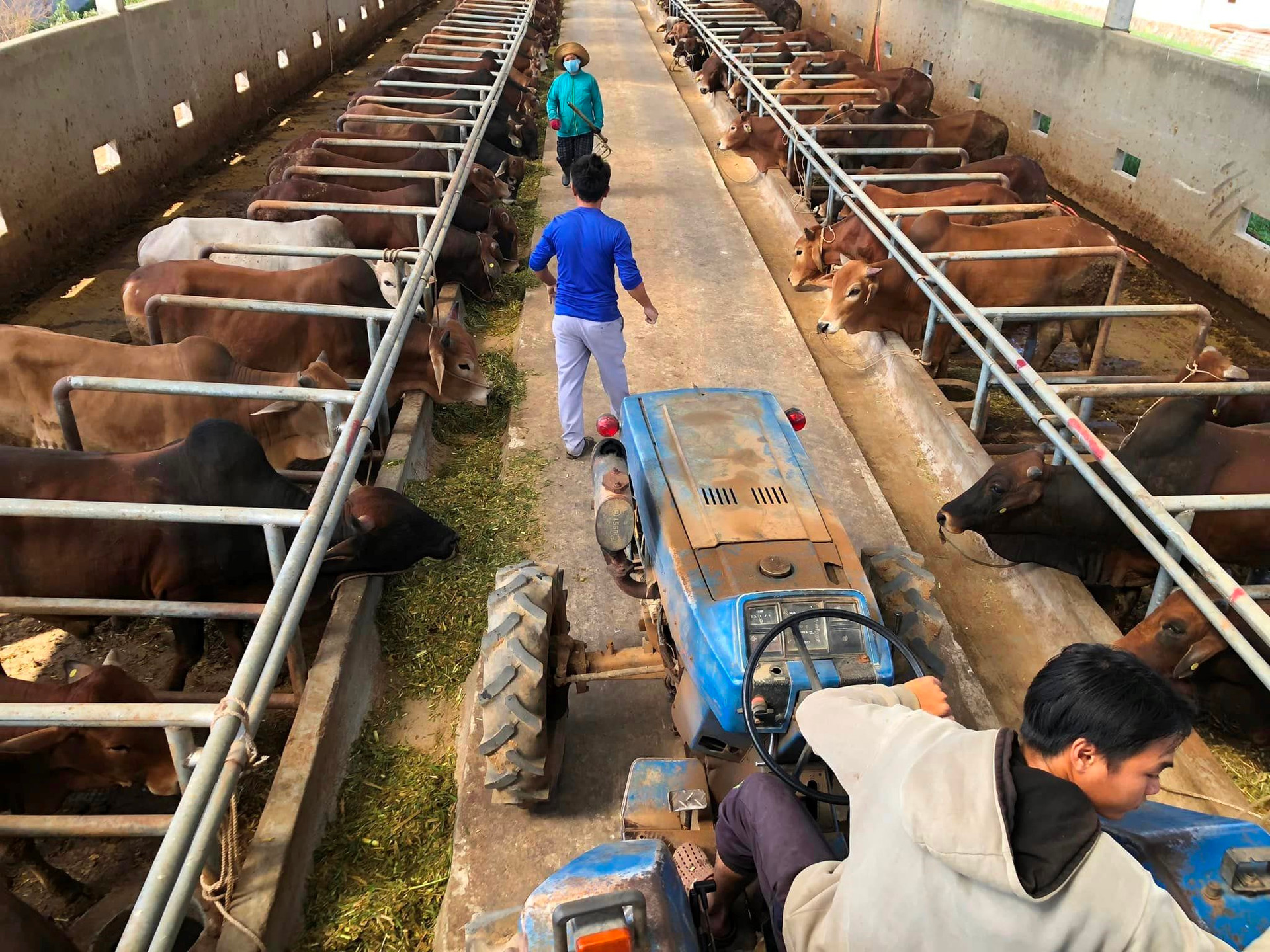
Mr. Vuong said that in addition to the garden – pond – barn model mentioned above, he also combines the earthworm farming model to take advantage of available cow manure to process it as microbial organic fertilizer to serve for the farm and to the commercial market.
By 2022, when the infrastructure has gradually been completed, the agricultural knowledge experience tourism category will be deployed to welcome tourists. Here, visitors can visit, learn practically and apply agricultural models at their own families and farms. The farm also offers visitors a first-hand planting and harvesting experience, participating in one of the production processes, an overnight campfire, and retailing fresh and processed products at the farm.
Take advantage of waste by-products and spoiled fruits
Mr. Vuong shared that at the farm, waste by-products and damaged fruits are also used to process IMO4 localized microorganisms for composting, odor treatment, earthworm farming… to supply to the melon and aloe vera growing partners in Ninh Thuan province. This is the added value segment that helps enhance the brand and reputation where the business has applied safe and environmentally friendly solutions, respecting nature and the health of consumers and workers.
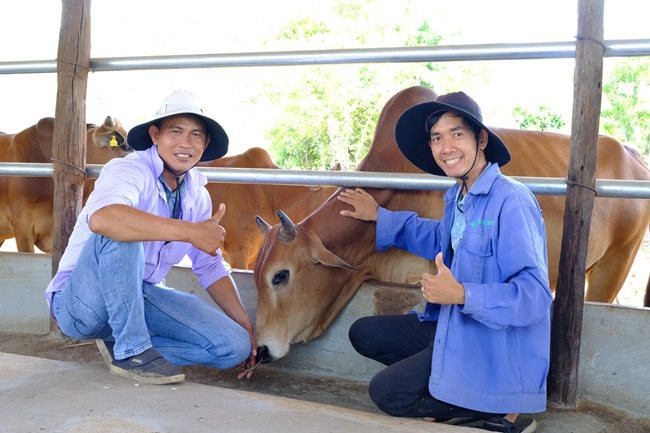
According to Mr. Vuong, the most distinct benefit of this model is the reuse of organic waste (cattle manure, spoiled fruits and vegetables, organic waste…) from the farm to be reused for processing into micro-organic fertilizers, vermicompost, biological nutritional products, microorganisms… and animal feed to serve back crops and livestock on the farm. From there, the model saves a lot of costs on fertilizers, microbial products and animal feed for the farm.
In addition, the implementation of this circular agricultural economic model also contributes to minimizing waste discharged into the land, water and air environment, helping to protect the surrounding environment, thereby creating a working environment in the healthy environment and happiness for all employees working on the farm. From the farm, a team of professionally trained and skilled personnel has created the best quality products to serve the market and maintain GC Food’s position as the largest aloe vera and coconut jelly manufacturing company in Vietnam.















